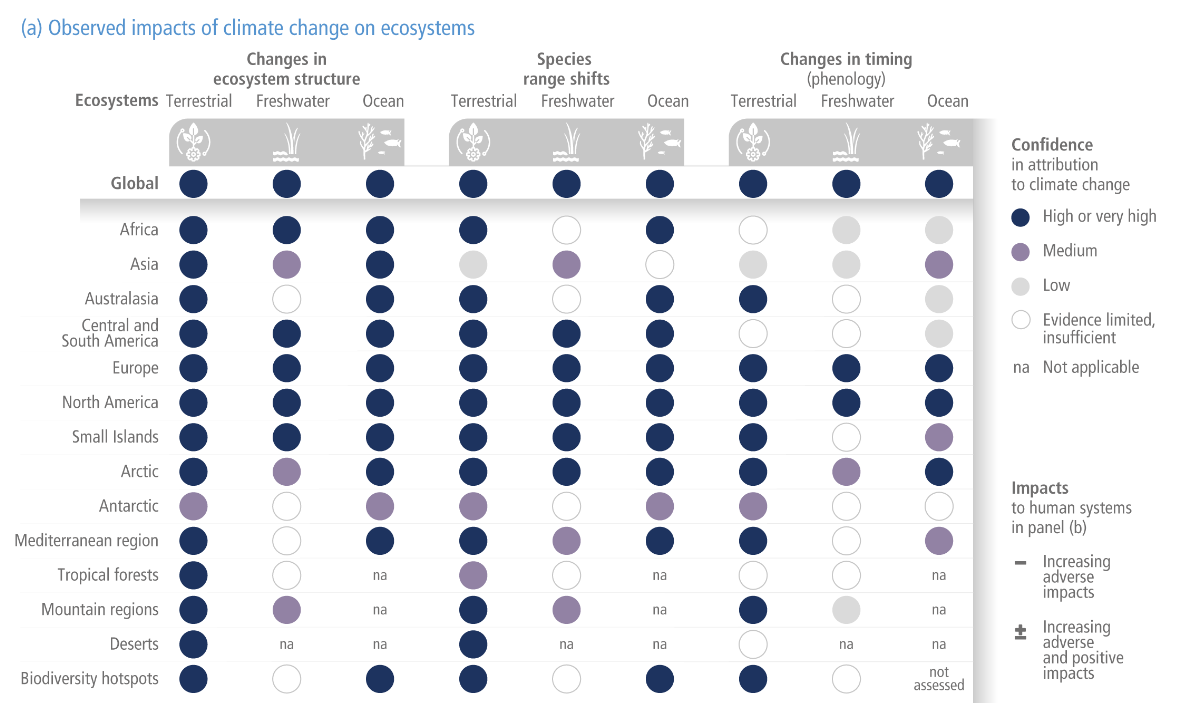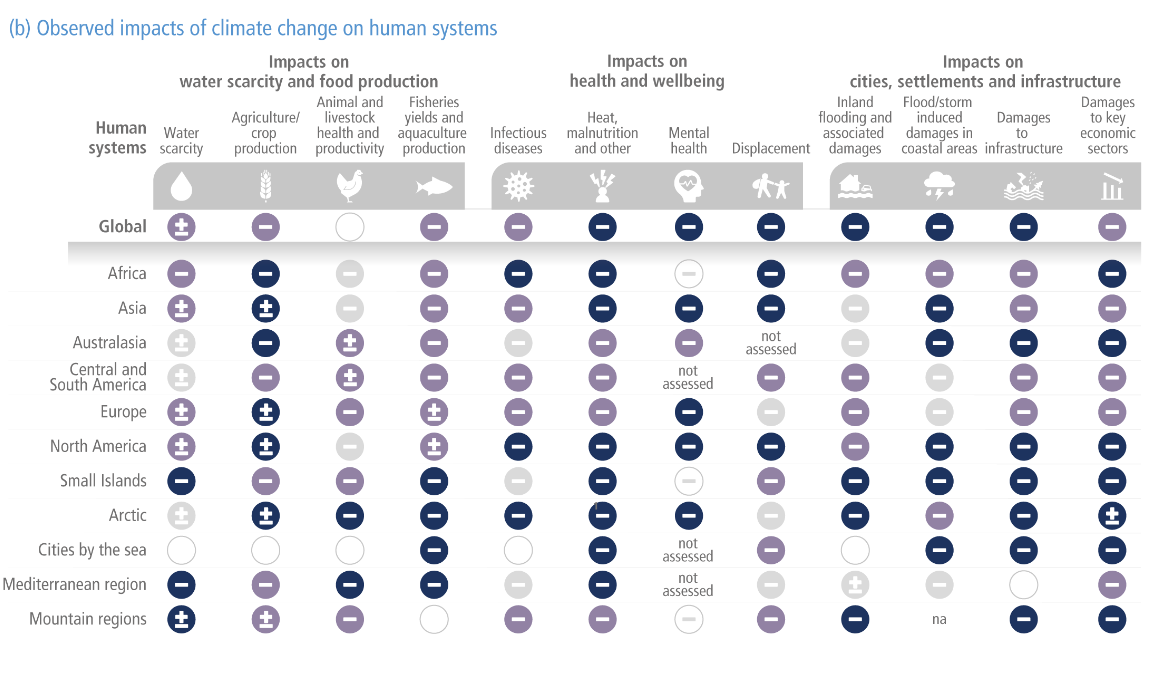The Intergovernmental Panel on Climate Change (IPCC) released today its Climate Change 2022: Impacts, Adaptation and Vulnerability report. This Working Group II contribution to the IPCC Sixth Assessment Report attributes the more frequent and intense weather and climate events and their resulting adverse impacts to human-induced climate change. National delegates from 195 countries have approved the contents of this report, the second in a series of four reports.
This report, which details the work of over 270 scientists, explains that severe consequences of climate change are already being experienced through unprecedented heat waves, rising sea levels, record-breaking wildfires, and other extreme events, but that adaptation measures can serve to make vulnerable communities more resilient to these impacts. The report, using climate models and analysis, attributes human system and ecosystem impacts to climate change, with varying degrees of confidence depending on the impact, region, and geographic area.
Observed impacts of climate change on ecosystems and human systems worldwide

Figure SPM.2: IPCC WGII Sixth Assessment Report, Summary for Policymakers (SPM), p. 10
Adopting new approaches to adaptation will require cross-sector collaboration
The IPCC emphasizes the need for the transition from piecemeal adaptation measures to the adoption of carefully-planned and wide-sweeping adaptation strategies, which will require collaboration among sectors, to address climate change on a global scale.
In response to the report’s findings, BCSE President Lisa Jacobson said, “it remains more important than ever for the U.S. and international community to enact legislation that incentivizes global action on mitigation and adaptation.”
Jacobson further stated the willingness of the private sector to act, “U.S. energy efficiency, natural gas, and renewable energy businesses are working to provide the technologies that will enable the clean energy transition and a more resilient world.”
The Panel’s key findings, with high or very high confidence, include:


Additional findings, with high or very high confidence, as reported by the Panel include:
- Climate change has already altered terrestrial, freshwater and ocean ecosystems at global scale, with multiple impacts evident at regional and local scales.
- Climate change has already had diverse impacts on human systems, including on water security and food production, health and well-being, and cities, settlements and infrastructure.
- Infrastructure, including transportation, water, sanitation and energy systems have been compromised by extreme and slow-onset events, with resulting economic losses, disruptions of services and impacts to wellbeing. Economic damages from climate change have been detected in climate-exposed sectors, with regional effects to agriculture, forestry, fishery, energy, and tourism. Some extreme weather events, such as tropical cyclones, have reduced economic growth in the short-term.
- Climate change impacts on health are mediated through natural and human systems, including economic and social conditions and disruptions. Climate change including increases in frequency and intensity of extremes have reduced food and water security, hindering efforts to meet Sustainable Development Goals.
- Climate change is contributing to humanitarian crises where climate hazards interact with high vulnerability. Climate and weather extremes are increasingly driving displacement in all regions, with small island states disproportionately affected.
- Global warming, reaching 1.5°C in the near-term, would cause unavoidable increases in multiple climate hazards and present multiple risks to ecosystems and humans. The level of risk will depend on concurrent near-term trends in vulnerability, exposure, level of socioeconomic development and adaptation.
- The magnitude and rate of climate change and associated risks depend strongly on near-term mitigation and adaptation actions, and projected adverse impacts and related losses and damages escalate with every increment of global warming.
- Multiple climate hazards will occur simultaneously, and multiple climatic and non-climatic risks will interact, resulting in compounding overall risk and risks cascading across sectors and regions.
- There are feasible and effective adaptation options which can reduce risks to people and nature. The feasibility of implementing adaptation options in the near-term differs across sectors and regions. The effectiveness of adaptation to reduce climate risk is documented for specific contexts, sectors and regions and will decrease with increasing warming. Integrated, multi-sectoral solutions that address social inequities, differentiate responses based on climate risk and cut across systems, increase the feasibility and effectiveness of adaptation in multiple sectors.
- There is increased evidence of maladaptation across many sectors and regions since the AR5. Maladaptive responses to climate change can create lock-ins of vulnerability, exposure and risks that are difficult and expensive to change and exacerbate existing inequalities. Maladaptation can be avoided by flexible, multi-sectoral, inclusive and long-term planning and implementation of adaptation actions with benefits to many sectors and systems.
The IPCC will release an additional report in March of 2022 detailing its proposed solutions and advocating for the adoption of adaptation strategies and mitigation approaches. The IPCC will also issue a final report synthesizing all findings following the release of the March 2022 report.
The full IPCC report, as well as the summary for policymakers and the technical summary can be found at https://www.ipcc.ch/report/ar6/wg2.
About the Author: Valerie Fritts is the BCSE’s 2021 Jan Schori Fellow.

